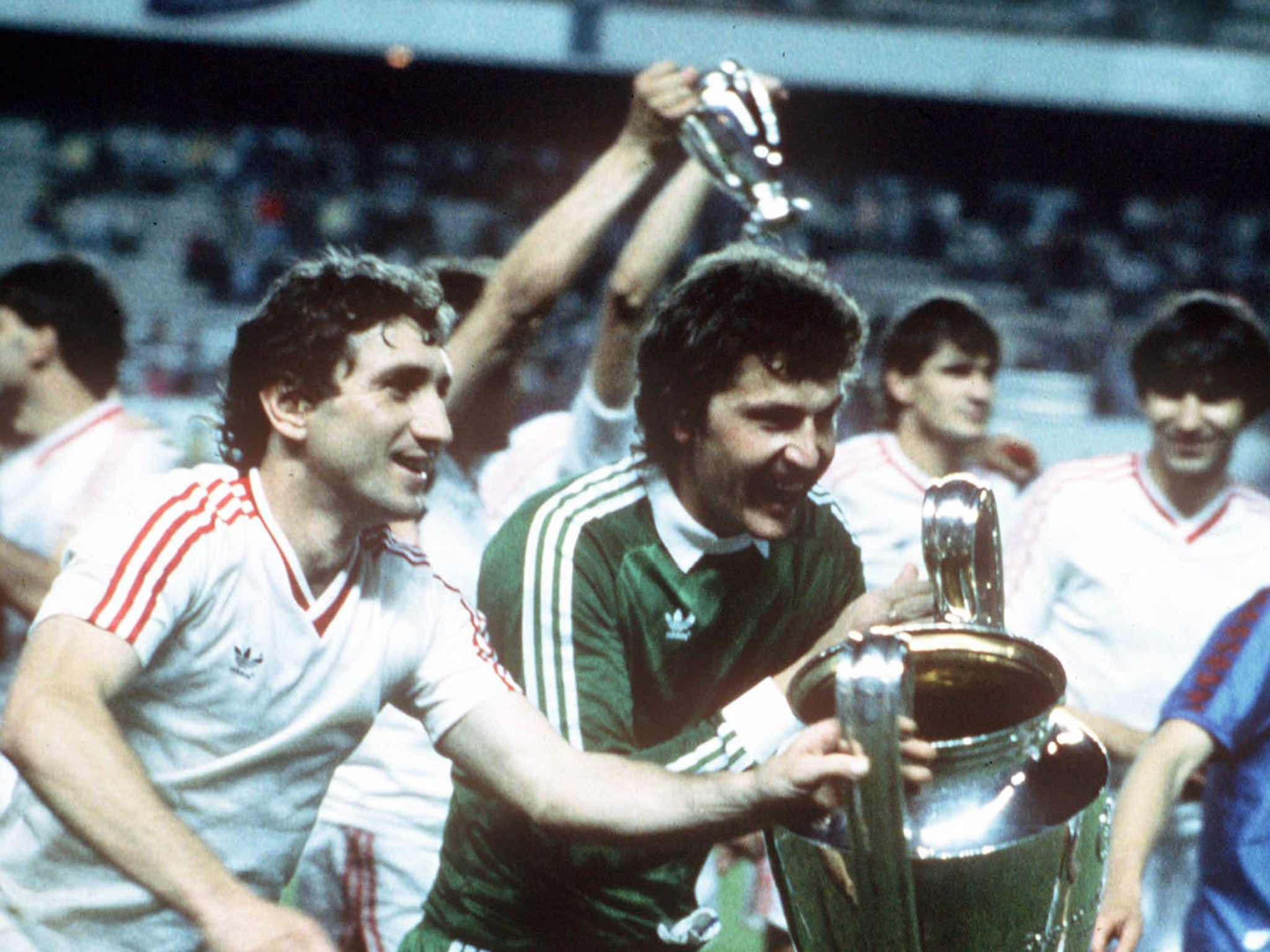Champions League: Once feared across Europe, Chelsea opponents Steaua Bucharest went the way of the Wall
An exodus of talent, the end of state support and meagre resources have proved terminal

A trip to Steaua Bucharest, such as Chelsea experience today, used to be cause for trepidation, and not just because of the spartan hotels and unpalatable food behind the old Iron Curtain. Surviving those privations was the easy part; come the match Steaua were a force to be reckoned with. The Romanian army club won the European Cup in 1986, defeating Terry Venables’ Barcelona on penalties, and were only denied in 1989 when they ran into Ruud Gullit’s Milan in the final.
Steaua were not the only formidable club in the Soviet bloc. Bucharest rivals Dynamo knocked out the defending champions Hamburg in 1983 while Red Star Belgrade won the competition in 1991, defeating Chris Waddle’s Marseilles on penalties in the final. Even Liverpool, the continent’s dominant club between 1977 and 1984, when they won a quartet of titles, had cause to be wary of such opposition. They lost just four ties in those eight European Cup seasons. Brian Clough’s Nottingham Forest beat them in 1978-79 – the other clubs to defeat them were Dynamo Tbilisi (Soviet Union, now Georgia), CSKA Sofia (Bulgaria) and Widzew Lodz (Poland).
Though Steaua and Red Star were the only Eastern European clubs to win the European Cup, the forerunner of the Champions League, the region produced semi-finalists on a regular basis for nearly 50 years. This ought not be surprising. The competition came about partly in response to British claims that Wolves were the best club side in the world after they beat the fabled Hungarian army team, Ferenc Puskas’s Honved, in 1954.
The European Cup was launched the following year and Red Star made the last four in the competition’s second season. More than a dozen other clubs from Hungary, Czechoslovakia, Yugoslavia, Bulgaria, Poland, Romania and the Soviet Union followed suit.
Not any more. Oligarch wealth enables a few big clubs from Ukraine and Russia to mix it with the elite, but the old Soviet satellite states lack the resources to produce strong teams. Only two made it into the Champions League group stages this season, Steaua and Czech club Viktoria Plzen. Both lost their opening game 3-0, to Schalke 04 and Manchester City respectively. Neither is expected to qualify.
Indeed, no team from the old Soviet satellite states has reached the last four since the competition was rebranded as the Champions League in 1992-93. The last quarter-finalists were Legia Warsaw in 1996 and not since Sparta Prague, in 2004, has any team even reached the knockout stages.
The reasons are not hard to decipher: political change followed by financial inequality. While the Iron Curtain was in place footballers, like other members of society, had no freedom to emigrate so clubs were able to hold on to their best players. When the Berlin Wall fell, triggering a collapse of the East’s puppet regimes, footballers were among the first to escape. Steaua’s 1989 team quickly broke up as players such as Gheorghe Hagi, Marius Lacatus and Dan Petrescu took advantage of the new opportunities. The club’s decline was hastened by it having been favoured by the notorious dictator Nicolae Ceausescu. Defender Miodrag Belodedici had fled while the regime was still in place, to Belgrade where he joined Red Star. He was tried and found guilty of treason in absentia, but the charges were dropped after the Romanian Revolution of Christmas 1989.
This exodus was repeated elsewhere, with the leading players heading for Spain and Italy, England and Germany. The flight has increased as east European clubs, shorn of state support, with limited commercial possibilities and low broadcast revenues, have slipped so far behind the west financially the gap appears unbridgeable. Now players leave while they are merely promising youngsters, not established players on the European stage.
Uefa’s European Club Licensing Benchmarking Report lays bare the gulf. In the last financial year for which records are complete (2011), Premier League clubs’ average revenue was €134m (£117m). Bundesliga clubs averaged €101m, Spanish and Italian more than €80m. Polish clubs, the wealthiest in the old Soviet satellites, had an average revenue of €6m. That is not only much less than clubs in countries such as Austria (€23m) and Denmark (€13m), it is lower than the average revenue of English League One clubs (€6.3m). Clubs in Romania (€5m) and Czech Republic (€4m) at least earn more than clubs in League Two (€3.5m) but those in Slovakia, Croatia and Hungary do not. Serbian clubs make €1m on average, the same as those in the Irish Republic, Bulgarian clubs even less.
These figures are hardly unexpected, given poor attendances. In Romania, Serbia and Czech Republic only one club averaged more than 10,000 at the gate for domestic league games. Clubs as big as Ferencvaros and Partizan Belgrade only pass 10,000 for derby matches. Poor facilities, suspicion of match-fixing and hooliganism are all factors that keep fans away. Income is also affected by poor sales of merchandise, which is further hampered by the counterfeit economy, and there is very little corporate entertaining.
The future is just as bleak. The advent of Uefa’s Financial Fair Play condemns clubs from these countries to second-class status as it rules out the prospect of sugar daddies coming in and investing millions. While Jose Mourinho will be aware there is always the possibility of a club such as Steaua claiming a scalp in a one-off match, the days when such clubs were to be feared are well and truly over.
Subscribe to Independent Premium to bookmark this article
Want to bookmark your favourite articles and stories to read or reference later? Start your Independent Premium subscription today.

Join our commenting forum
Join thought-provoking conversations, follow other Independent readers and see their replies